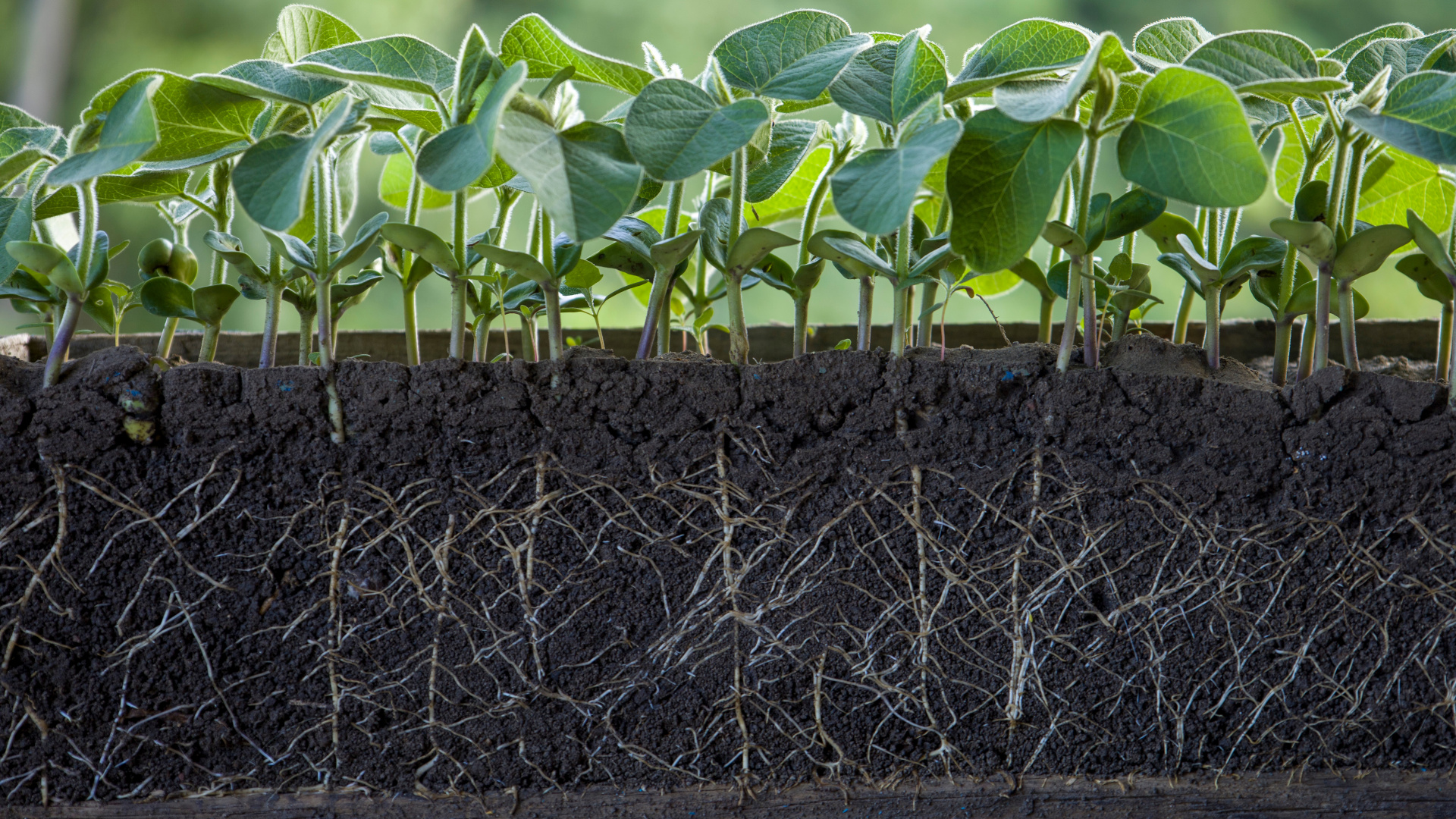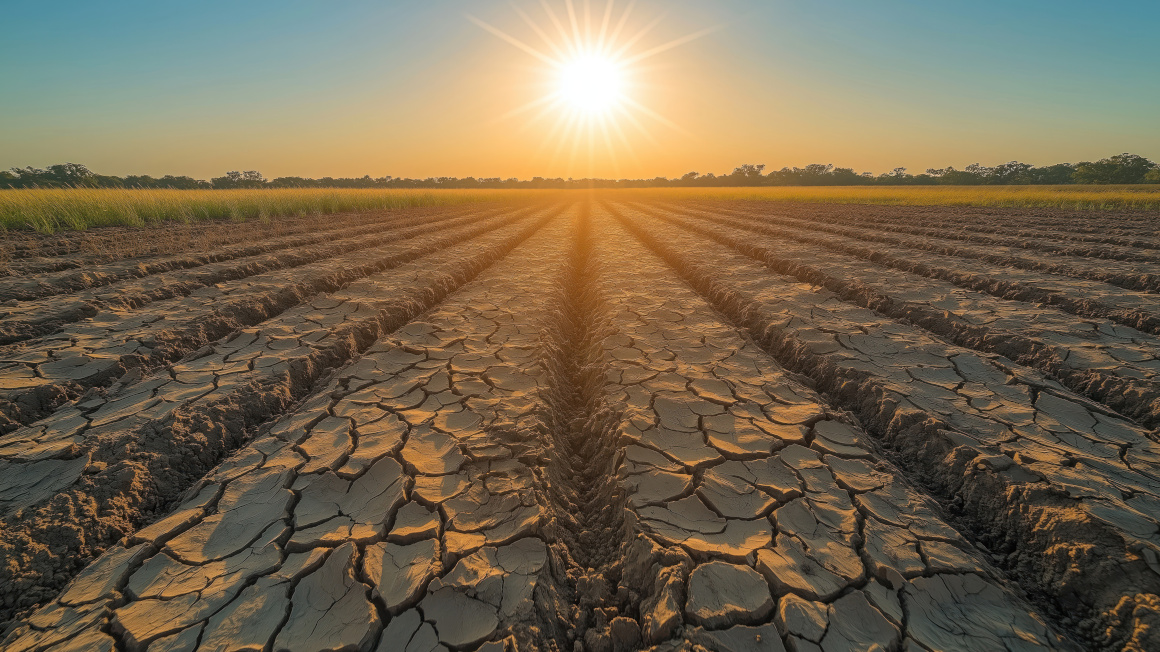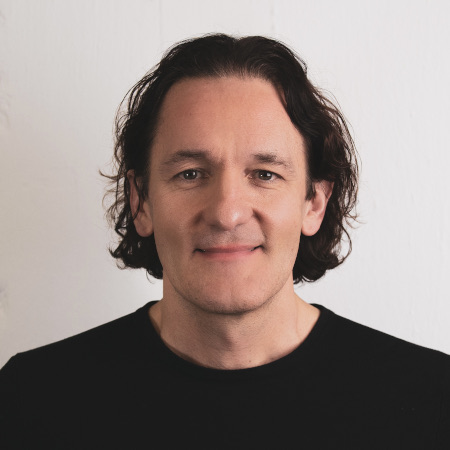“We force microalgae to excrete valuable signaling substances”
Omar KhalafProfession: Biotechnologist and industrial engineer
Position: Founder and Managing Director of the Berlin-based start-up Alganize

Profession: Biotechnologist and industrial engineer
Position: Founder and Managing Director of the Berlin-based start-up Alganize

Soil regeneration with the help of microalgae is the focus of the Berlin start-up Alganize, which develops solutions to improve soil health.
Soil is a vital resource and indispensable for ecosystems, the climate and society. However, industrial agriculture and the consequences of the climate crisis are putting increasing pressure on soils. As a result, fertile soils are becoming ever scarcer. According to studies, more than 60% of agricultural land in the EU is degraded. Omar Khalaf from the Berlin start-up Alganize wants to do something about that. "Stopping soil degradation is a matter close to our hearts," says the biotechnologist. Together with his team, Khalaf is developing innovative microalgae-based solutions to improve soil health and secure yields.
Why do you use microalgae to improve the soil? What distinguishes them from other natural soil conditioners such as legumes?
Microalgae are unicellular plants that have an extraordinarily high photosynthetic capacity. This enables them to produce a variety of valuable compounds. They can also be cultivated under controlled conditions, offering a large surface area while taking up little space. The technology we have developed allows the extraction of highly valuable secondary metabolites from microalgae, such as phytohormones and phenols. Our product is suitable as a supplement to legumes: As part of a current feasibility study with legumes, we plan to stimulate their inoculation and strengthen the symbiosis between legumes and rhizobia.
Which microalgae does Alganize use? In what form are they used in your products?
There are over 50,000 different types of microalgae. We use a combination of five different strains of algae to manufacture our product. Through physical and biological action, we force the algae to excrete valuable signal substances. The microalgae in our product act like the chicken in chicken soup. While the biomass is processed further, we use the valuable broth for agriculture.
How do microalgae affect the microbiome in the soil specifically? How do plants and soils benefit from them ?
Plant hormones and phenols play a crucial role in agriculture. Their application promotes plant growth, increases disease resistance and improves overall plant health. Plant hormones such as auxins and gibberellins induce root growth and cell division, which leads to an increase in plant vitality and productivity. At the same time, they influence the production of root exudates, which promotes the growth of beneficial soil bacteria. Phenolic compounds such as salicylic acid and flavonoids in turn strengthen the plant's defense against pathogens and thus reduce the need for chemical pesticides. The synergistic interaction of plant hormones and phenols enables farmers to implement more sustainable cultivation methods, leading to increased yields and improved soil fertility.
Alganize has developed a monitoring system to monitor and evaluate environmental changes in the soil microbiome. How does the monitoring work and how meaningful are the results? What conclusions can farmers draw from this?
The soil monitor enables precise observation of the soil. As the processes in the soil occur relatively slowly, a trial period of three to five years is usually necessary to enable a valid assessment of soil improvement. However, by directly observing the beneficial microorganisms in the soil using DNA sequencing, we can make faster and more accurate statements. This saves the farmer a lot of time and money.
We examine both the activity and the quantity of microorganisms such as Bacillus subtilis before and after application. We take a soil sample, apply our product and other products and analyze it again after a year to see how the soil life has changed. This allows the farmer to see not only what is on the soil surface, but also what is growing within the soil.
In your opinion, what is the main area of application for your microbial soil additives?
Initially, the focus will be on reducing chemical fertilizers and pesticides, particularly in conventional agriculture, which is striving to gradually decrease the amount of these additives. A reduction of 10 % is planned for the first year, 20 % for the second year and 30 % for the third year.
Where do you see Alganize in five years' time?
Our approach is characterized by a consistent thread that runs through the entire team. We are young and highly motivated - stopping soil degradation is a matter close to our hearts. In five years' time, we will have realized our "superhero dream"; hand in hand with the European Green Deal - 20% less fertilizer and 50% less pesticides by 2030 - we will be helping farms to maintain or improve soil fertility. As a very young company, we already have our first customers and have taken our feasibility studies from the lab to the field. We would like to invite everyone to start a trial with us with their own unique soil.
Interview: Beatrix Boldt


